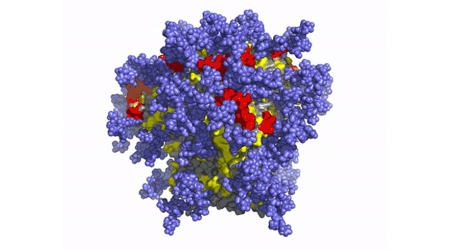COVID Vaccine - a Game Changer
Friday, April 9th, 2021
First-in-human clinical trial confirms novel HIV vaccine approach developed by IAVI and Scripps Research

As the world moves past the one-year mark of the COVID-19 pandemic, scientists in February announced that they have taken breakthroughs achieved with the Covid vaccine development and applied them to another virus — one that has devastated populations for the past forty plus years: Human Immunodeficiency Virus (HIV).
HIV affects over 38 million people worldwide. Societal and cultural barriers slow or prevent treatment for the disease in many parts of the world. Almost one million people died in 2019 from AIDS-related illnesses.
For the first time, we now have hope for a novel preventative vaccine approach HIV.
HIV is among the most difficult viruses to target with a vaccine, due to its ability - like the coronavirus - to rapidly mutate and evade the immune system.
On April 8, Scripps Research and IAVI announced the first human clinical trial testing a novel vaccine approach to prevent HIV – with promising results.
“This study demonstrates proof of principle for a new vaccine concept for HIV, a concept that could be applied to other pathogens, as well,” says William Schief, PhD, a professor and immunologist at Scripps Research and executive director of vaccine design at IAVI's Neutralizing Antibody Center, whose laboratory developed the vaccine.
While not yet an actual inoculation against HIV, the phase 1 clinical trial showed surprising success in stimulating production of rare immune cells which could generate antibodies against the virus, which currently has millions of varied strains.
For decades now, HIV researchers have pursued the holy grail of stimulating the immune system to create rare but powerful antibodies that can neutralize diverse strains of HIV. Known as “broadly neutralizing antibodies,” or bnAbs, these specialized blood proteins could attach and neutralize the HIV spiked proteins on the virus surface that allow the virus to enter human cells – much like the COVID vaccine.
“This is a landmark study in the HIV vaccine field, demonstrating success in the first step of a pathway to induce broad neutralizing antibodies against HIV-1,” Julie McElrath, MD, PhD, senior vice president and director of Fred Hutch’s Vaccine and Infectious Disease Division says. “The novel design of the immunogen, the clinical trial and the molecular B cell analyses provide a roadmap to accelerate further progress toward an HIV vaccine.”
Researchers believe the approach could also be applied to vaccines for other challenging pathogens such as influenza, dengue, Zika, hepatitis C viruses and malaria.
This study represents the intense, focused collaboration across a wide network of scientists and organizations, with funding by the Bill and Melinda Gates Foundation through the Collaboration for AIDS Vaccine Discovery,
Read more at Scripps Research ►